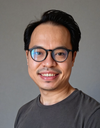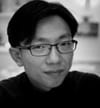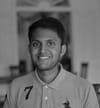- Home
- September 2023
- Zulfigar Yasin: A Creator of Marine Parks Who Can't Help Being A Mentor
Zulfigar Yasin: A Creator of Marine Parks Who Can't Help Being A Mentor
by
Penang Monthly

Previous Post
Shaping the Future of Learning with Technology
4 min read
AROUND THE WORLD, technology is rewriting the rules of teaching and learning, reshaping classrooms and redefining the studentteacher dynamic. Malaysia stands as...
Next Post
Foo Hong Tatt's Poetry in Paint
5 min read
FOO HONG TATT was born on 9 April 1940, several months before World War II descended upon Malaya. He recalls hiding with his family at their estate in the hills...
You might also like
Coaching Makes Effective Leaders
3 min read
IN THE CORPORATE world, the traditional authoritarian leadership model has given way to more collaborative and people-centric approaches, and requires that lead...
How Not To Get Lost On A Hike and What To Do If You Do
6 min read
“AREN’T YOU SCARED of getting lost in the jungle?” I have lost count of how many times I’ve been asked this question, and I am sure many other hikers would have...
Shaping the Future of Learning with Technology
4 min read
AROUND THE WORLD, technology is rewriting the rules of teaching and learning, reshaping classrooms and redefining the studentteacher dynamic. Malaysia stands as...




